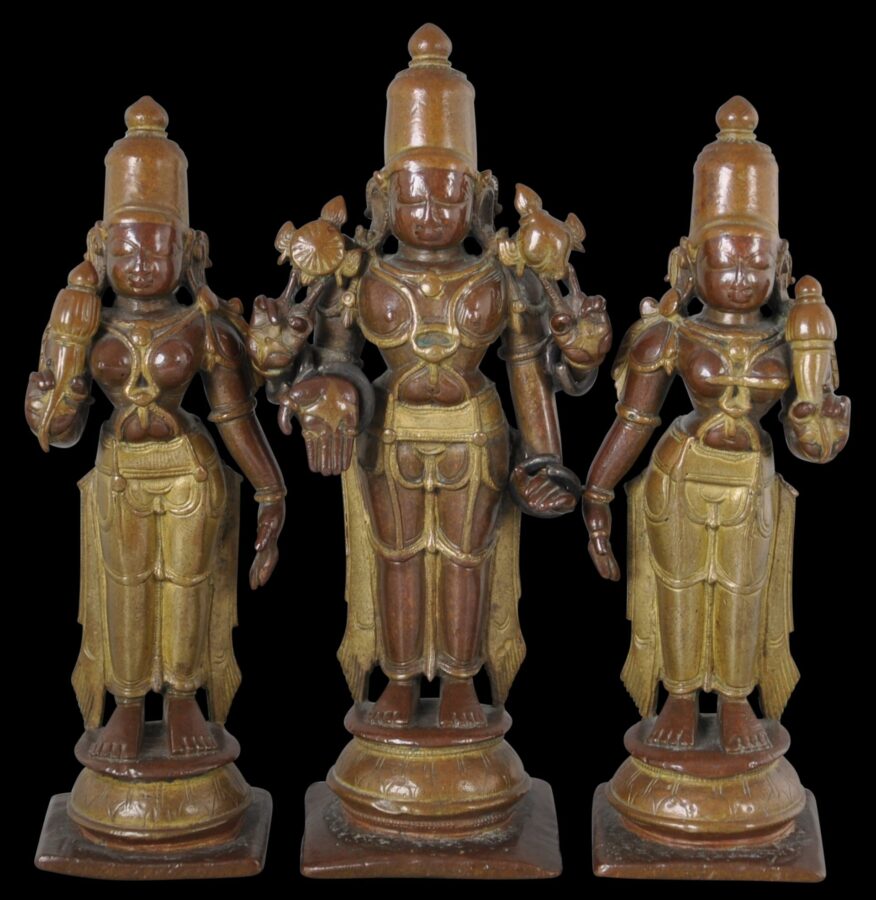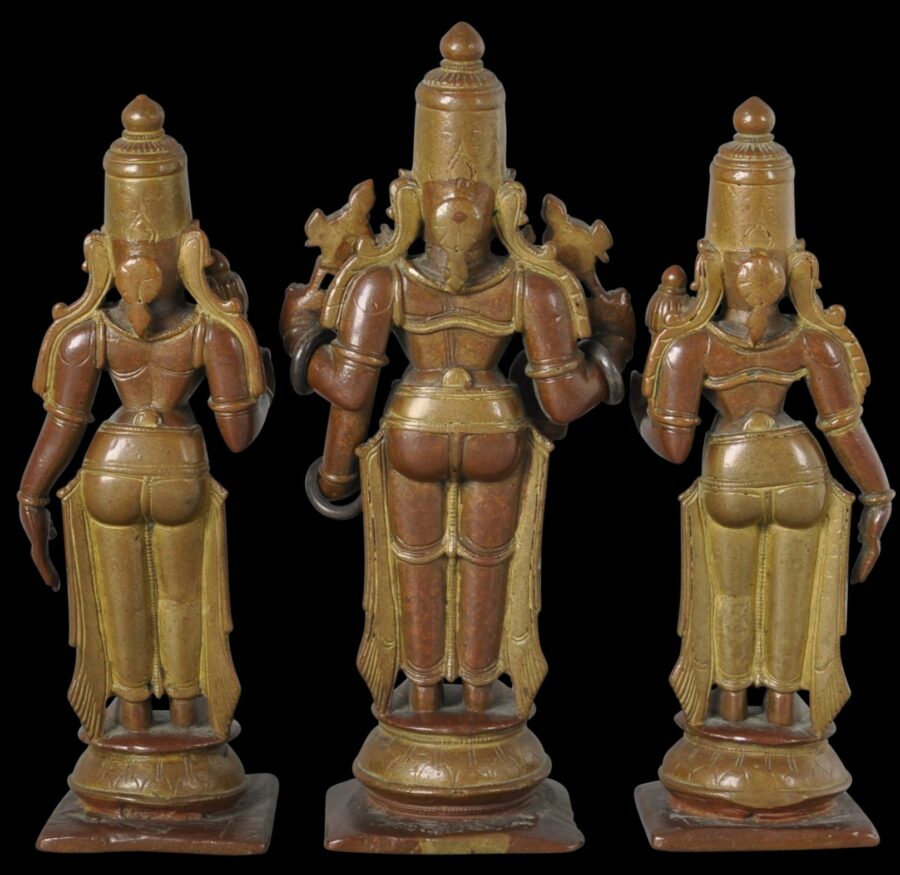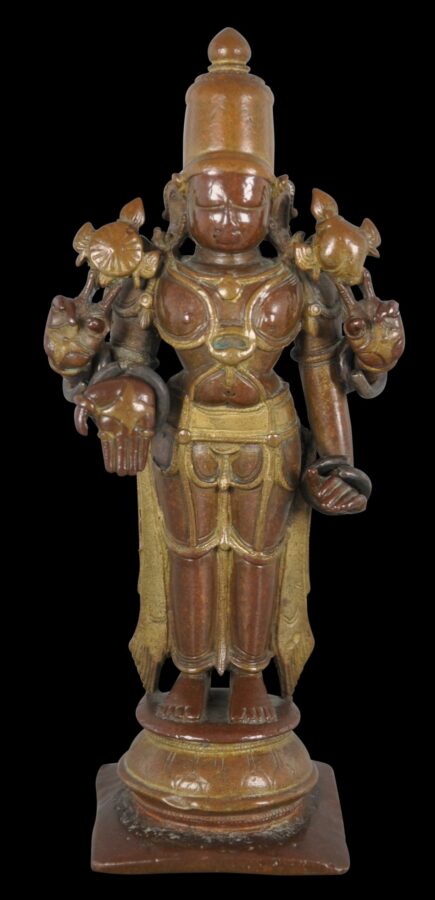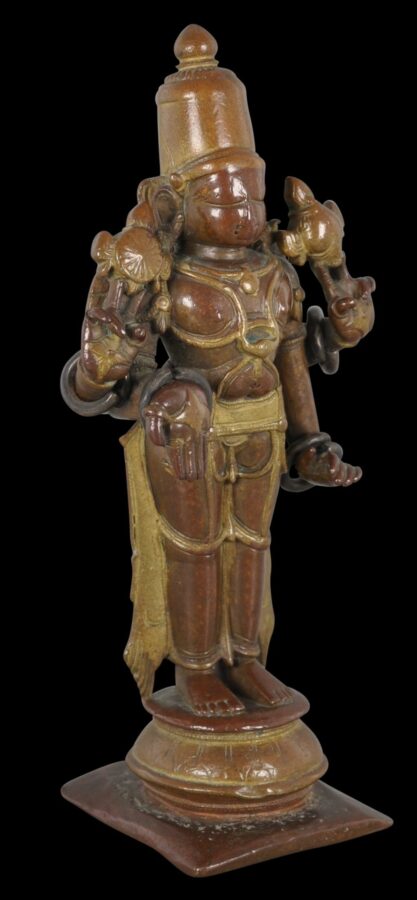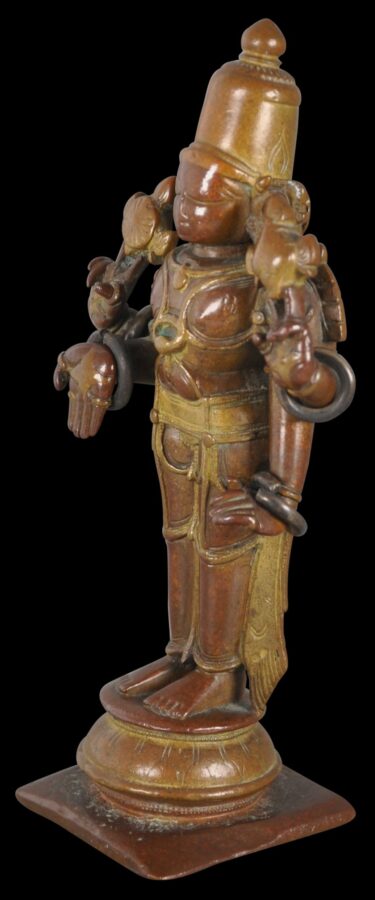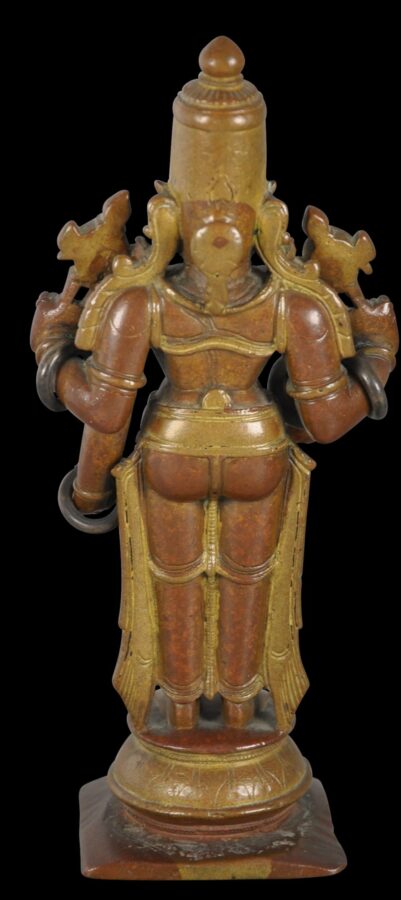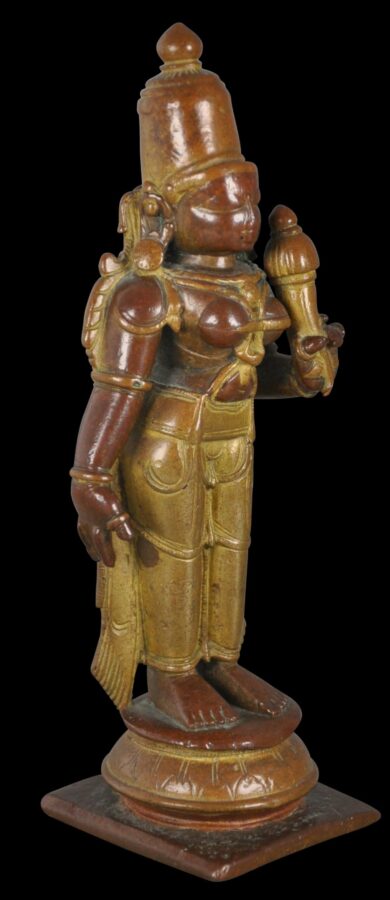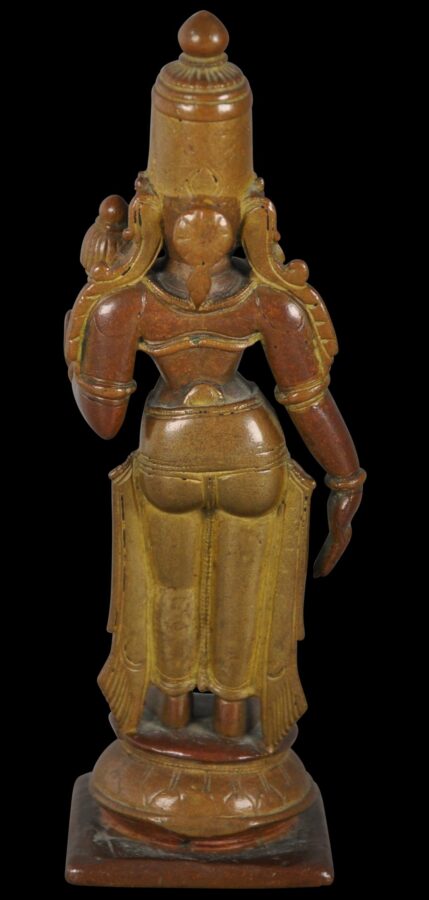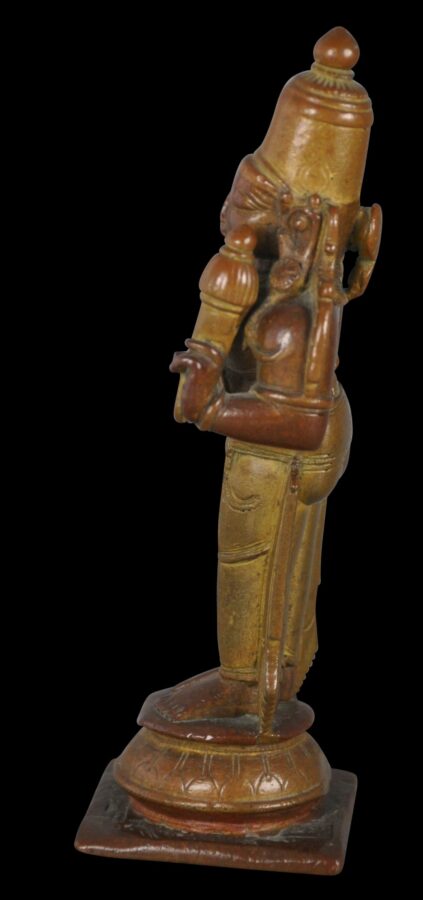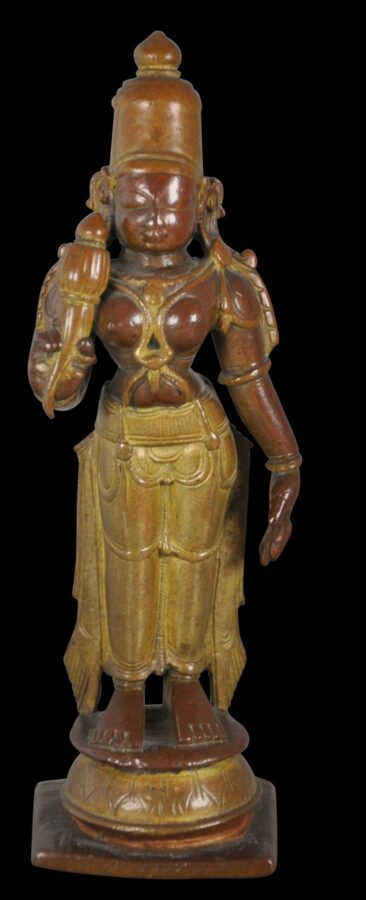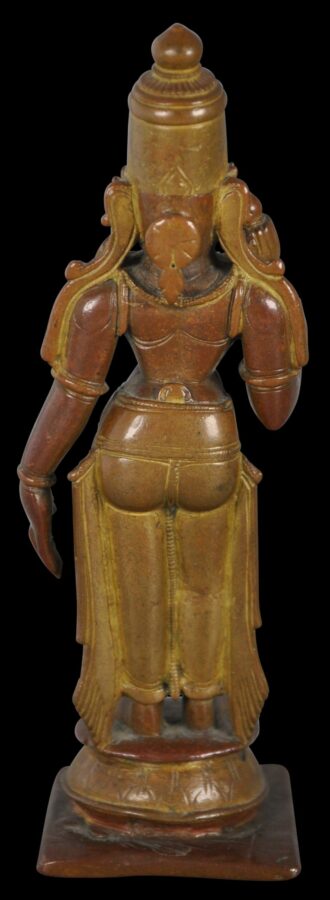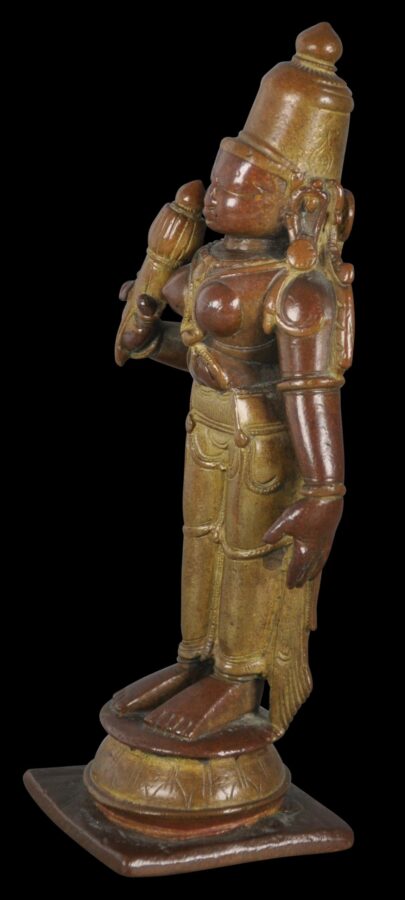This matched trio of Vishnu and his two consorts, Bhu Devi and Sri Devi, is of good size. The set has been decorated with what is known as the Ganga-Jumna technique whereby each image has been cast in bronze and finished with applied brass highlights.
The term Ganga-Jumna relates to India’s two largest rivers which traditionally have had two different colours on account of differing types of soil sediment suspended in their waters. This type of work was done in the 17th-19th centuries in and around Tanjore (now known as Thanjavur), in Tamil Nadu, in southern India.
Each of the three images has wonderful detail – but also ample puja wear from ritual handling and bathing.
Vishnu is shown standing, holding a chakra and a sankha in his secondary arms. He wears various body ornaments, a dhoti with prominent, flowing side ribbons, and a tall crown.
His consorts are similarly attired. Sri Devi wears an identifying breast band.
Each figure stands on a lotus pedestal.
Additionally, Vishnu is decorated with four copper rings around his arms that have been added by an adherent. These themselves have a lovely patina.
Complete earlier sets of Vishnu and his consorts are difficult to find; typically the pieces become separated from one another. This set is rarer still having been completed in the Ganga-Jumna technique. It is also in excellent condition.
References
Mitchell, A.G., Hindu Gods and Goddesses, UBSPD, 1982.
Pal, P. (ed.), Puja and Piety: Hindu, Jain, and Buddhist Art from the Indian Subcontinent, Santa Barbara Museum of Art/University of California Press, 2016.


